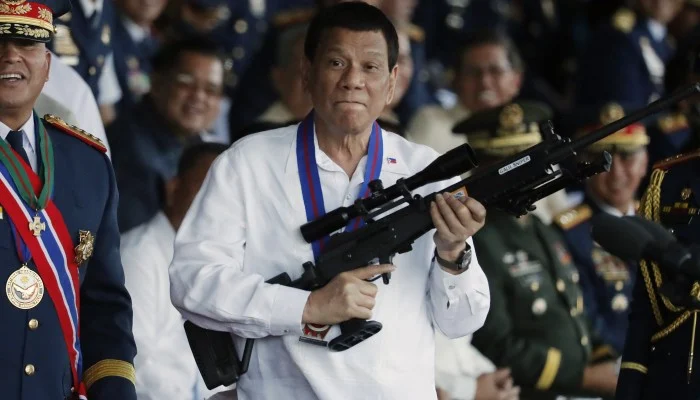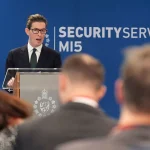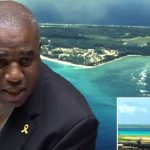Rodrigo Duterte, the former President of the Philippines, has officially registered to run for mayor of Davao City, his hometown, despite the controversial legacy of his brutal anti-drug campaign that is currently under investigation by the International Criminal Court (ICC) as a potential crime against humanity.
At 79 years old, Duterte submitted his candidacy papers to the Election Commission on Monday. He previously served as mayor of Davao for nearly two decades before ascending to the presidency in 2016. His son, Sebastian Duterte, who is the incumbent mayor, will run as his vice mayor in the upcoming mid-term elections.
During his presidency, Duterte oversaw a significant crackdown on illegal drugs, which resulted in the deaths of over 6,000 people, primarily poor drug suspects, according to government statements. However, human rights organizations estimate that the actual death toll could be much higher, citing many unresolved killings by gunmen riding motorcycles, who are believed to have connections to law enforcement.
Although Duterte has denied endorsing extrajudicial killings, he has made public statements threatening suspects with death and has instructed police to kill individuals who violently resist arrest. While his administration aggressively targeted the drug problem, Duterte later admitted that he underestimated the scale of the issue, acknowledging that drug challenges persist.
In 2019, Duterte pulled the Philippines out of the ICC in a move critics interpreted as an attempt to evade responsibility for his actions. Nevertheless, the ICC prosecutor maintains that the court retains jurisdiction over any alleged crimes committed while the Philippines was still a member.
Since leaving office in 2022, Duterte had claimed he would retire from politics; however, he has since reversed that statement on multiple occasions. His daughter, current Vice President Sara Duterte, revealed that he and his two sons were considering runs for seats in the 24-member Senate. Nonetheless, Duterte expressed to reporters in Davao that his declining health could impede his ability to campaign for a national position.
Despite stepping down, Duterte remains a popular figure, but human rights advocates and political opponents are likely to mount strong campaigns against his return to public office. His relationship with President Ferdinand Marcos Jr. has been strained, with Duterte publicly criticizing Marcos as weak and a drug abuser. In response, Marcos dismissed Duterte’s accusations, countering that he had used fentanyl, a powerful opioid.
Sara Duterte recently resigned from her roles as education secretary and head of an anti-insurgency body under the Marcos administration—another sign of the unraveling ties between her family and Marcos over key policy differences, including the administration’s assertive stance against China’s aggressive actions in the South China Sea.
Throughout his presidency, Duterte cultivated close ties with leaders like Chinese President Xi Jinping and Russian President Vladimir Putin while consistently attacking the security policies of the U.S. and other Western governments.
Credit: CNN




